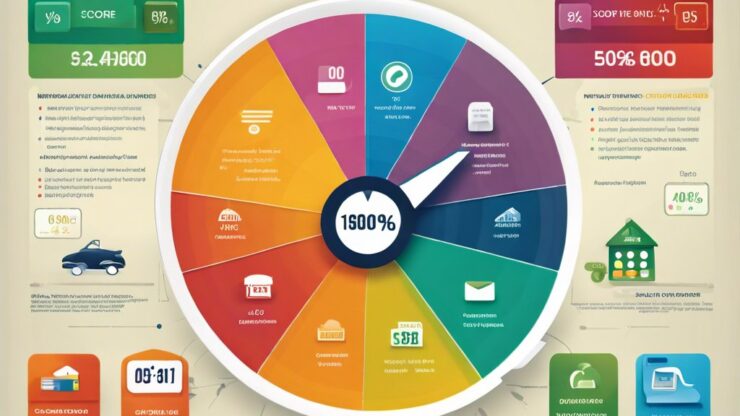Unlocking Financial Opportunities
Your credit score is more than just a number; it’s a powerful tool that can unlock various financial opportunities. Whether you’re applying for a mortgage, a car loan, or even a credit card, your credit score plays a crucial role in determining your eligibility and the terms of your loan. A strong credit score can lead to lower interest rates, saving you thousands over the life of a loan. On the contrary, a poor credit score may result in higher rates or even denial of credit altogether. Understanding the implications of your credit score is essential for effective personal finance management.
Credit Score Components Explained
To grasp how your credit score can impact your financial journey, it’s important to understand its components. The FICO score, the most widely used credit scoring model, is calculated based on five main factors:
- Payment History (35%): Your history of on-time payments versus late payments.
- Credit Utilization (30%): The ratio of your current credit card balances to your total credit limits.
- Length of Credit History (15%): How long your credit accounts have been active.
- Types of Credit (10%): The variety of credit accounts you have, including credit cards, mortgages, and installment loans.
- New Credit (10%): The number of recently opened credit accounts and inquiries.
Understanding these components can help you identify areas for improvement. For instance, if your credit utilization is high, paying down your credit card balances can positively impact your score.
Navigating the Financial Landscape with a Strong Credit Score
A strong credit score is not just a benefit; it’s a necessity in today’s financial landscape. It can affect your ability to obtain loans, the interest rates offered to you, and even your insurance premiums. Many employers check credit scores as part of their hiring process, particularly for positions that require financial responsibility. Knowing how to leverage your credit score can put you in a position of power. Here are some strategies to improve and maintain your credit score:
- Regularly check your credit report for errors.
- Pay your bills on time to establish a solid payment history.
- Keep your credit utilization below 30%.
- Avoid opening multiple new credit accounts at once.
- Consider becoming an authorized user on a responsible person’s credit card.
By following these steps, you can enhance your credit score and, consequently, your financial opportunities and security.
Disclaimer
This article has been created or edited with the support of artificial intelligence and is for informational purposes only. The information provided should not be considered investment advice. Please seek the support of a professional advisor before making any investment decisions.






